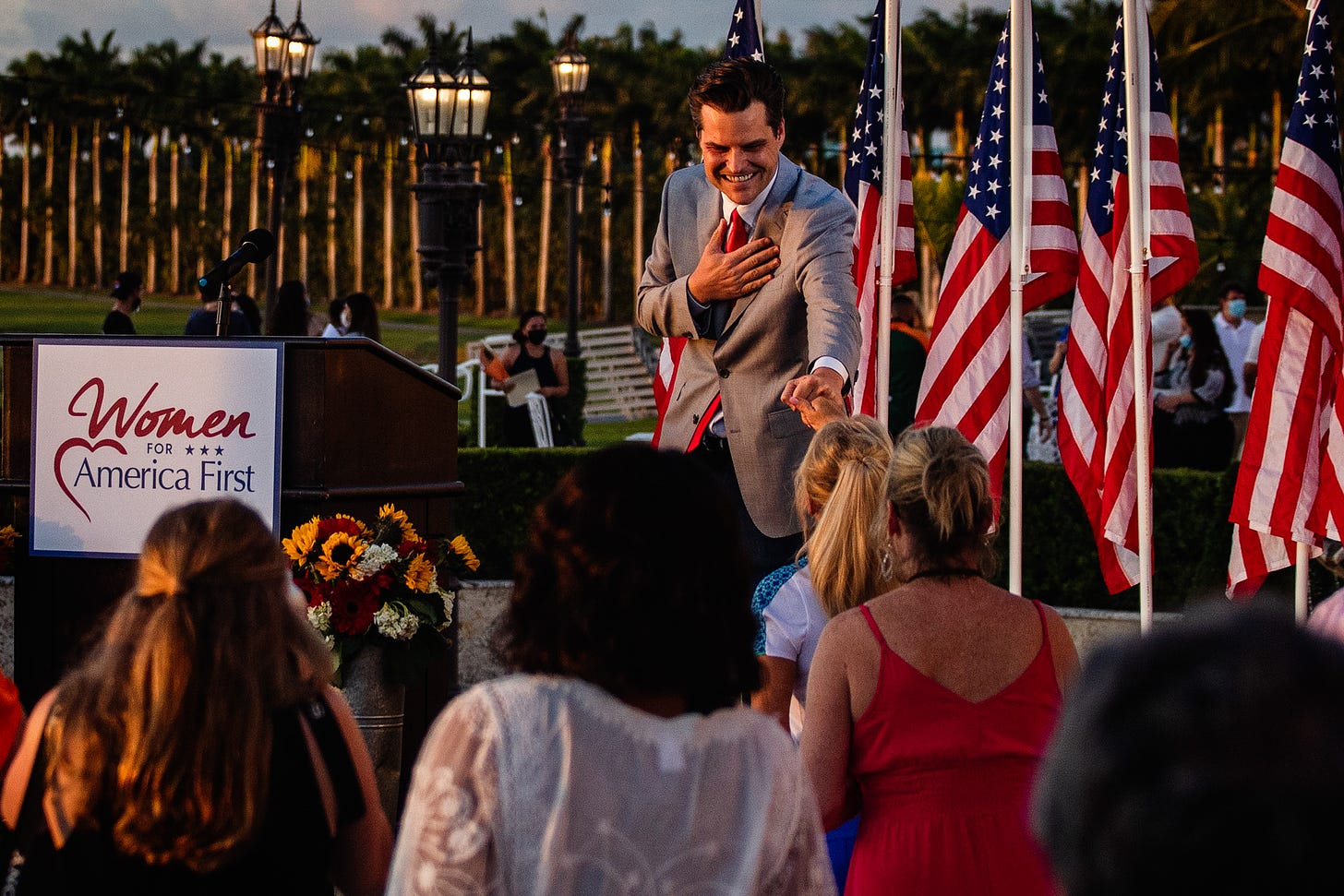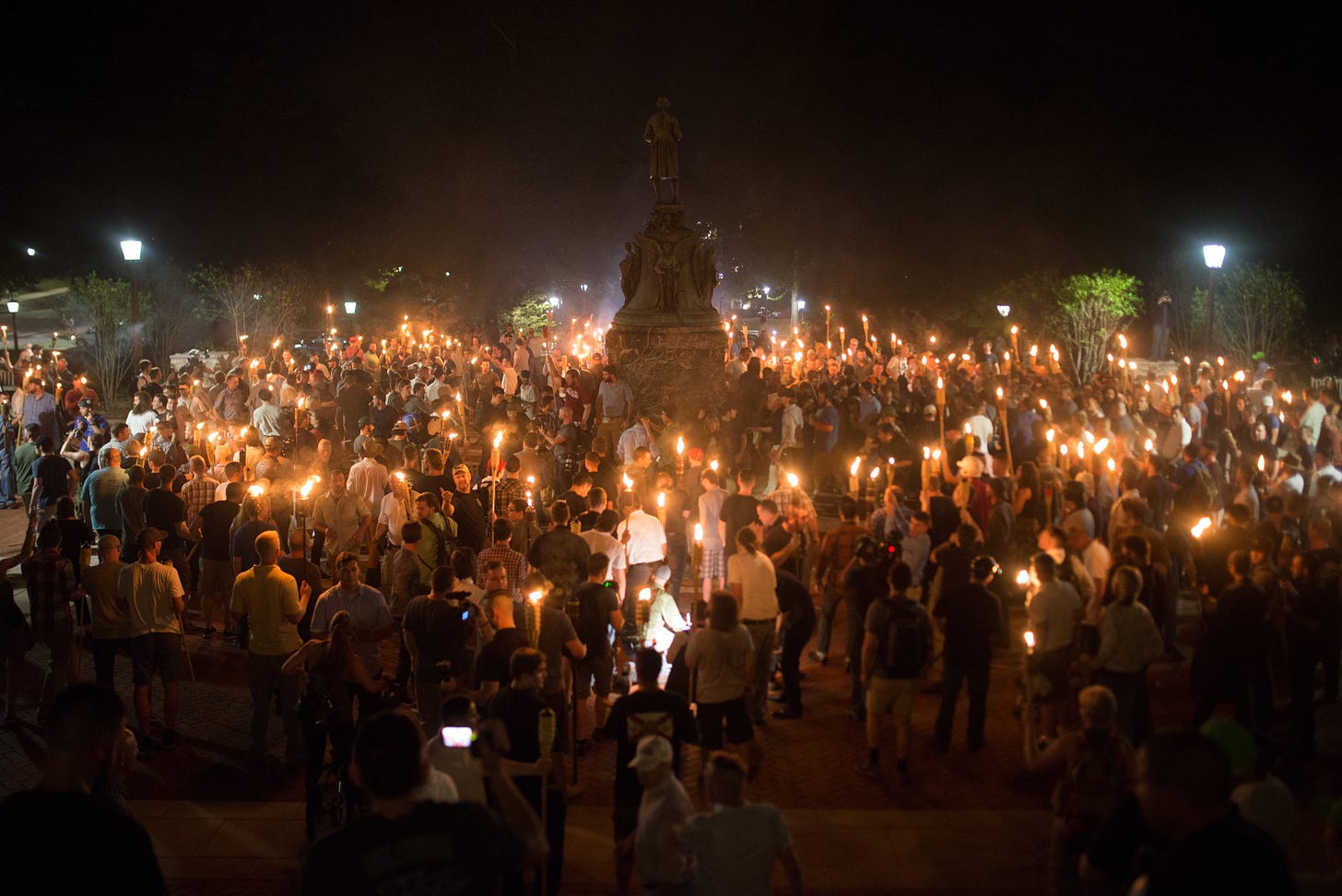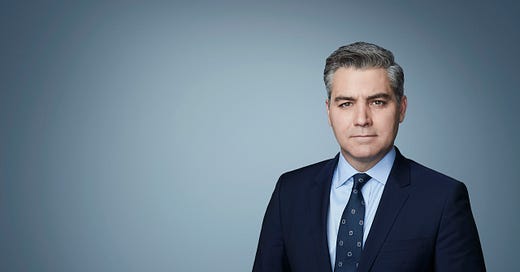I am very pleased to bring you this interview with Jim Acosta, a CNN anchor for weekend programming and the network's chief domestic correspondent. Previously, Acosta served as CNN's chief White House correspondent, where he covered the Trump and Obama administrations. His awards include The National Association of Hispanic Journalists 2017 Presidential Award and the 2019 New York Press Club "Truth to Power" award. He is the author of the 2019 New York Times bestselling book The Enemy of the People: A Dangerous Time to Tell the Truth in America. The interview, conducted on April 9, 2021, has been edited for clarity and flow.
RBG (Ruth Ben-Ghiat): We have a new administration, yet the legacy of Donald Trump’s presidency continues in the GOP's investment in voter suppression and institutionalized lying. How do you see the state of our country, especially after the Jan. 6 assault on the Capitol?
JA (Jim Acosta): I was shocked but I wasn't surprised at Jan. 6. I saw a lot of this building up during the years I covered him on the 2016 campaign trail and at the White House. At rally after rally you would see him whipping crowds into a frenzy, attacking immigrants and Democrats, warning about jailing his political opponents, all of that. The only difference between the rallies and what happened on Jan. 6 is that at the rallies, people would go to their cars and go home. On Jan. 6, he riled them up and then sent them off to the Capitol.
The foundation for that insurrection was built by the former president lying over and over again about election fraud. I recently tweeted out a briefing held on April 8, 2020, at which I asked Trump for evidence of the widespread voter fraud he was talking about. He said at that briefing that he would provide evidence of it- well he still hasn't provided any evidence. That was the Big Lie before the Big Lie.
RBG: What will be the political fallout of Jan. 6 for Trump?
JA: One would think the political fallout would include ostracizing Donald Trump and treating him as a kind of dictator in exile down in Mar-a-Lago, but the opposite of that is occurring. [In April] a retreat for Republican donors was held at Mar-a-Lago. And Women for America First hosted a summit at Trump's Doral golf course- that same organization was an organizer of the Jan. 6 rally. The Republican Party is embracing a person who has demonstrated time and again his addiction to and affinity for anti-democratic ideas, like the notion that if the election doesn't go your way you try and overturn the results and strongarm people.

RBG: During the Trump era, the press was demonized by the government, while the public looked to the media to be a savior, setting up expectations that perhaps could not be met. What's your view of the media's role in democracy protection?
JA: We have to be strong defenders of the First Amendment. Journalists are not traditionally supposed to take sides on issues of policy, but I think it's perfectly appropriate for members of the press to be proponents of a free and independent press. It doesn't tilt one's reporting in one direction or the other, nor does it mean you are a Democrat or a Republican.
A press that holds leaders to account is one of the linchpins of democratic society, not just in the US but around the world. You don't want to trade places with people living in places with a state media or state-friendly media. We take it for granted that we can pop on the TV and see a journalist giving a Congressman a hard time on Capitol Hill. You do that in other parts of the world and they will lock you up and you won't be a journalist anymore. Trump reminded us that we should not take this freedom of the press for granted.
RBG: You are a first-generation American. So am I. Many immigrants have seen America as a place where anyone, from any background, could thrive. And for people coming from situations of political repression, America stands for freedom. And yet this "it can't happen here" mentality left millions of Americans, including some of the press corps, unprepared for Trump's attacks on our democracy.
Your father came here from [Fidel Castro's] Cuba, and perhaps this made you more aware of what could happen. Is this why you were so forthright in calling out Trump's lies and racism, including your pushback against Trump's relativizing stance on neo-Nazi violence at the 2017 Charlottesville "Unite the Right" rally?
JA: During the 2016 campaign [Trump] called us liars, scum, criminals. People would come over to the press area at the end of rallies and call us traitors. Some of my colleagues who were not on the campaign trail may have felt that this was just an act by a reality television president, but they were not out there experiencing the hostility first hand. It was an early alarm bell for me.
As for my upbringing and family history, yes, my dad is a Cuban refugee. He came over to America weeks before the 1962 Cuban missile crisis, he was 11 years old at the time. Of course, I saw my family treated unfairly sometimes, but by and large I was taught growing up that you welcome immigrants into this country. That's far different than the experience Trump generated on the campaign trail, describing Mexican immigrants as rapists, which created a climate of intolerance and violence that's led to some terrible events in this country.
When the Charlottesville situation happened, we were at the infamous press conference at Trump Tower and you could hear Trump saying in code that he was okay with what happened because these people were marching to conserve Confederate statues. He condemned white supremacy, but he also said there were people on the other side who were aggravating the situation too. And I said well the neo-Nazis started this, and that's when he said that there are "very fine people, on both sides." Trump laid traps for the press, he knew that we had to show deference, say "Mr. President," and put him on a pedestal. But I felt that if the president is playing footsie with white supremacists, that needs to be called out in an aggressive way.

RBG: How do you see the relationship of the press and the Biden administration so far?
JA: Joe Biden will do things that require intense scrutiny and will say things from time to time that aren't in line with the facts. We will ask hard questions, like what's happening down at the border. But it's good to have a press secretary [Jen Psaki] who is not accusing the press the way Kayleigh McEnany did at the end of the Trump administration.
There is also a different environment now by virtue of the lowering of the temperature, and that is strategic on Biden's part. Rachet down the trauma level, let us cover other things, don't have the president in the headlines every day. The public was exhausted by Trump at the end of his presidency, it's part of the reason he lost re-election. It's too early to draw any hard conclusions, but not being called "the enemy of the people" is a step in the right direction.
RBG: Biden's strategy is smart: speak less, say what you mean, restore trust in leadership, and let everyone recover from this long nightmare. On that note, what do you do to stay serene?
JA: I exercise a lot, I started that during the Trump years, when we were busy all the time dealing with the firehose on full blast in our faces. It can be hard as a journalist to fully relax. but I do try to unplug and put the phone down.
It's going to take time for folks to recover from the last four years, not just journalists, but the entire country. We went through what was perhaps the greatest test of our democratic form of government that I have seen in my lifetime (I was not around for World War Two, that was obviously a greater test). It will take years to fully process and assess what happened after November 3, during that interregnum period when the president tried to intimidate state election officials and his own vice-president [Mike Pence] into overturning election results which were very clear. And I don't think the whole buildup to Jan. 6 has been fully reported on. Historians will be digging into this period for generations. This really was an attempted coup by a sitting president of the United States in order to remain in power.
Looking back on covering Trump, I would not have done it any other way, and one of the reasons I am serene exiting that period is that I did what I felt I had to do. Maybe because of my background as a son of a Cuban refugee and a single mother, I thought I saw things going down the tubes, and felt that needed to be reported on as aggressively as possible. I did that and that makes me feel okay now.





I wonder if journalists colluded with Trump by attending rallies in which they were the active targets of hate and threats by he and his followers. Perhaps, they should have absented themselves from situations where they were at risk, and reported from a distance at the abberant, hateful nature of the rallies. By being targeted in real time, and staying through it, they became a sad part of the story which they were supposed to cover.
Ruth Ben-Ghiat deserves the initials RBG. So enjoyed hearing her on NarativeLive with Zev Shalev talking about her book “Strongmen.” As for this interview....Great questions from one first generation American to another, imo, bringing forth a larger perspective, and thus perhaps...a reason Acosta’s response shows principled moral clarity, “ Journalists are not traditionally supposed to take sides on issues of policy, but I think it's perfectly appropriate for members of the press to be proponents of a free and independent press.” I sure hope @brianstelter read this interview. Great beginning to a review of what we are still going through until NY and the DOJ get moving; and I hope it’s soon.